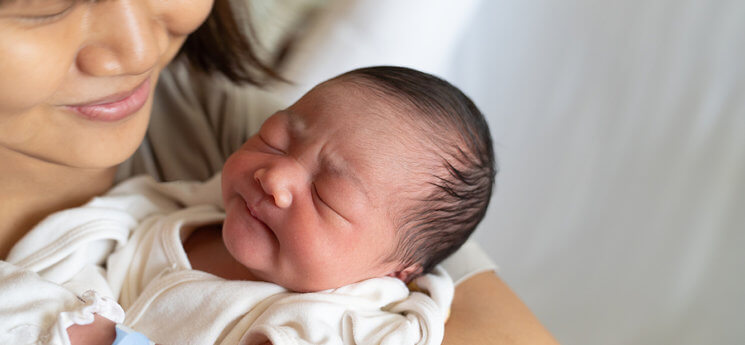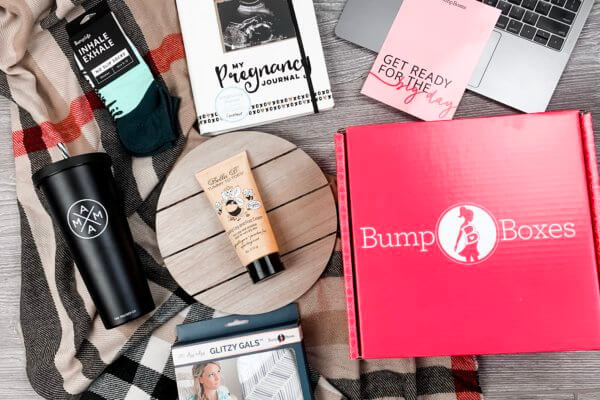There is a lot of information out there for expectant and new mothers…so much so that it gets confusing! A new book, The Baby Nurse Bible, attempts to cut through all of that and get to the stuff you really need to know!
The Baby Nurse Bible, written by a professional nurse on the front lines of infant and postpartum care, teaches new and expectant moms things such as ways to love their pregnant bodies and bounce back postpartum; evading “mommy guilt;” tips for successful, painless breastfeeding; and adjusting to life at home with the new addition.
We spoke with the author, Carole Kramer Arsenault, RN, IBCLC, and asked her if she could give us 5 tips for new and expectant moms. Countless practical, hands-on tips come to mind when I think about what advice to lend to new and expecting moms. But while all of the ins and outs of baby preparation, breastfeeding, and newborn care are extremely valuable, here are a few fundamentals I think every mom should keep in mind as they make their incredible journey into motherhood.
5 Tips for New Moms
1. Seek Support Networks
All new moms needs support, whether it’s chatting in an Online group of other moms who may have the same birthing goals as you, finding out where you can get breastfeeding help once home from the hospital, or joining a “new moms” group to meet up with when you and your baby are ready. Not all moms are lucky enough to live near their family and many have great friends who happen to be in a completely different life phase.
It makes a huge difference to surround yourself with positive voices and create networks that you can turn to for support. But whether you have those outlets or not, always reach out to your health care provider if you have any serious physical or emotional concerns about you or your baby.
2. Find Fresh Air
Winter, spring, summer or fall, if you and your newborn are healthy, enjoy the outdoors. Just dress your baby in comfortable, weather-appropriate clothes, place him in a stroller or infant carrier and go for a walk everyday if possible. Being outside in the light and fresh air will re-energize, keep you fit, and your baby will love it!
3. Start Healthy Habits
From foods and personal care products, to cleaning supplies and baby toys, there are a lot of toxins out there. By doing fairly quick research on sites like ewg.org you can arm yourself with the knowledge about what’s best for you and your baby based on the latest research.
You don’t have to do a complete lifestyle overhaul overnight but simple things like buying organic versions of produce with highest pesticide loads, making your own natural cleaners, and avoiding any products that have PVC, VOCs, phthalates and other harmful ingredients.
4. Embrace the Unpredictable
Newborn behavior and sleeping patterns can change from week to week, and don’t be surprised if your once easy-to-care-for one-month-old generally becomes a little more fussy—this is all part of normal part of infant development. Just use soothing techniques such as swaddling, giving a finger or pacifier to suck on, or rocking, and keep yourself calm.
Just remember that this will pass, especially if you try to incorporate some flexible routines early on, such as daytime naps and bedtime patterns.
5. Trust Your Instincts
It’s important to do your research on pregnancy, birth and baby care—especially if it’s all very new to you. But no matter how many classes you take or books you read, at the end of the day, every baby is unique and every situation has its own set of circumstances.
You will invariably have moments where advice of well-meaning people just doesn’t apply to your baby and you need to take a different course. As long as your baby is safe and loved, don’t sweat it and know that mother knows best.
About the author:
Carole Arsenault and her crew of baby nurses provide lactation consulting to clients at Boston’s top birthing hospitals, including Brigham and Women’s Hospital, Beth Israel Hospital, St. Elizabeth’s Medical Center, Newton-Wellesley Hospital, Massachusetts General Hospital, and Mount Auburn Hospital. Arsenault practiced as a labor and delivery nurse at Brigham and Women’s Hospital for many years, and is also an expert on environmental toxins that may affect pregnant women and newborns. She lives near Boston with her husband and their three children.




